Martin Wolf: The long and painful journey to world disorder
As the era of globalisation ends, will protectionism and conflict define the next phase?
It is not true that humanity cannot learn from history. It can and, in the case of the lessons of the dark period between 1914 and 1945, the west did. But it seems to have forgotten those lessons. We are living, once again, in an era of strident nationalism and xenophobia. The hopes of a brave new world of progress, harmony and democracy, raised by the market opening of the 1980s and the collapse of Soviet communism between 1989 and 1991, have turned into ashes.
What lies ahead for the US, creator and guarantor of the postwar liberal order, soon to be governed by a president who repudiates permanent alliances, embraces protectionism and admires despots? What lies ahead for a battered EU, contemplating the rise of “illiberal democracy” in the east, Brexit and the possibility of Marine Le Pen’s election to the French presidency?
What lies ahead now that Vladimir Putin’s irredentist Russia exerts increasing influence on the world and China has announced that Xi Jinping is not first among equals but a “core leader”?
The contemporary global economic and political system originated as a reaction against the disasters of the first half of the 20th century. The latter, in turn, were caused by the unprecedented, but highly uneven, economic progress of the 19th century.
The transformational forces unleashed by industrialisation stimulated class conflict, nationalism and imperialism. Between 1914 and 1918, industrialised warfare and the Bolshevik revolution ensued. The attempted restoration of the pre-first world war liberal order in the 1920s ended with the Great Depression, the triumph of Adolf Hitler and the Japanese militarism of the 1930s. This then created the conditions for the catastrophic slaughter of the second world war, to be followed by the communist revolution in China.
In the aftermath of the second world war, the world was divided between two camps: liberal democracy and communism. The US, the world’s dominant economic power, led the former and the Soviet Union the latter. With US encouragement, the empires controlled by enfeebled European states disintegrated, creating a host of new countries in what was called the “third world”.
Contemplating the ruins of European civilisation and the threat from communist totalitarianism, the US, the world’s most prosperous economy and militarily powerful country, used not only its wealth but also its example of democratic self-government, to create, inspire and underpin a transatlantic west. In so doing, its leaders consciously learnt from the disastrous political and economic mistakes their predecessors made after its entry into the first world war in 1917.
Domestically, the countries of this new west emerged from the second world war with a commitment to full employment and some form of welfare state. Internationally, a new set of institutions — the International Monetary Fund, the World Bank, the General Agreement on Tariffs and Trade (ancestor of today’s World Trade Organisation) and the Organisation for European Economic Co-operation (the instrument of the Marshall Plan, later renamed the Organisation for Economic Co-operation and Development) — oversaw the reconstruction of Europe and promoted global economic development. Nato, the core of the western security system, was founded in 1949. The Treaty of Rome, which established the European Economic Community, forefather of the EU, was signed in 1957.
This creative activity came partly in response to immediate pressures, notably the postwar European economic misery and the threat from Stalin’s Soviet Union. But it also reflected a vision of a more co-operative world.
From euphoria to disappointment
Economically, the postwar era can be divided into two periods: the Keynesian period of European and Japanese economic catch-up and the subsequent period of market-oriented globalisation, which began with Deng Xiaoping’s reforms in China from 1978 and the elections in the UK and US of Margaret Thatcher and Ronald Reagan in 1979 and 1980 respectively.
This latter period was characterised by completion of the Uruguay Round of trade negotiations in 1994, establishment of the WTO in 1995, China’s entry into the WTO in 2001 and the enlargement of the EU, to include former members of the Warsaw Pact, in 2004.
The first economic period ended in the great inflation of the 1970s. The second period ended with the western financial crisis of 2007-09. Between these two periods lay a time of economic turmoil and uncertainty, as is true again now. The main economic threat in the first period of transition was inflation. This time, it has been disinflation.
Geopolitically, the postwar era can also be divided into two periods: the cold war, which ended with the Soviet Union’s fall in 1991, and the post-cold war era. The US fought significant wars in both periods: the Korean (1950-53) and Vietnam (1963-1975) wars during the first, and the two Gulf wars (1990-91 and 2003) during the second. But no war was fought among economically advanced great powers, though that came very close during the Cuban missile crisis of 1962.
The first geopolitical period of the postwar era ended in disappointment for the Soviets and euphoria in the west. Today, it is the west that confronts geopolitical and economic disappointment.
The Middle East is in turmoil. Mass migration has become a threat to European stability. Mr Putin’s Russia is on the march. Mr Xi’s China is increasingly assertive. The west seems impotent.
These geopolitical shifts are, in part, the result of desirable changes, notably the spread of rapid economic development beyond the west, particularly to the Asian giants, China and India. Some are also the result of choices made elsewhere, not least Russia’s decision to reject liberal democracy in favour of nationalism and autocracy as the core of its post-communist identity and China’s to combine a market economy with communist control.
Rising anger
Yet the west also made big mistakes, notably the decision in the aftermath of 9/11 to overthrow Iraqi leader Saddam Hussein and spread democracy in the Middle East at gunpoint. In both the US and UK, the Iraq war is now seen as having illegitimate origins, incompetent management and disastrous outcomes.
Western economies have also been affected, to varying degrees, by slowing growth, rising inequality, high unemployment (especially in southern Europe), falling labour force participation and deindustrialisation. These shifts have had particularly adverse effects on relatively unskilled men. Anger over mass immigration has grown, particularly in parts of the population also adversely affected by other changes.
Some of these shifts were the result of economic changes that were either inevitable or the downside of desirable developments. The threat to unskilled workers posed by technology could not be plausibly halted, nor could the rising competitiveness of emerging economies. Yet, in economic policy, too, big mistakes were made, notably the failure to ensure the gains from economic growth were more widely shared. The financial crisis of 2007-09 and subsequent eurozone crisis were, however, the decisive events.
These had devastating economic effects: a sudden jump in unemployment followed by relatively weak recoveries. The economies of the advanced countries are roughly a sixth smaller today than they would have been if pre-crisis trends had continued.
The response to the crisis also undermined belief in the system’s fairness. While ordinary people lost their jobs or their houses, the government bailed out the financial system. In the US, where the free market is a secular faith, this looked particularly immoral.
Finally, these crises destroyed confidence in the competence and probity of financial, economic and policymaking elites, notably over the management of the financial system and the wisdom of creating the euro.
All this together destroyed the bargain on which complex democracies rest, which held that elites could earn vast sums of money or enjoy great influence and power as long as they delivered the goods. Instead, a long period of poor income growth for most of the population, especially in the US, culminated, to almost everyone’s surprise, in the biggest financial and economic crisis since the 1930s. Now, the shock has given way to fear and rage.
The succession of geopolitical and economic blunders has also undermined western states’ reputation for competence, while raising that of Russia and, still more, China. It has also, with the election of Donald Trump, torn a hole in the threadbare claims of US moral leadership.
We are, in short, at the end of both an economic period — that of western-led globalisation — and a geopolitical one — the post-cold war “unipolar moment” of a US-led global order.
The question is whether what follows will be an unravelling of the post-second world war era into deglobalisation and conflict, as happened in the first half of the 20th century, or a new period in which non-western powers, especially China and India, play a bigger role in sustaining a co-operative global order.
Free trade and prosperity
A big part of the answer will be provided by western countries. Even now, after a generation of relative economic decline, the US, the EU and Japan produce just over half of world output measured at market prices and 36 per cent of it measured at purchasing power parity.
They also remain homes to the world’s most important and innovative companies, dominant financial markets, leading institutions of higher education and most influential cultures. The US should also remain the world’s most powerful country, particularly militarily, for decades. But its ability to influence the world is greatly enhanced by its network of alliances, the product of the creative US statecraft during the early postwar era. Yet alliances also need to be maintained.
The essential ingredient in western success must, however, be domestic. Slow growth and ageing populations have put pressure on public spending. With weak growth, particularly of productivity, and structural upheaval in labour markets, politics has taken on zero-sum characteristics: instead of being able to promise more for everybody, it becomes more about taking from some to give to others. The winners in this struggle have been those who are already highly successful. That makes those in the middle and bottom of the income distribution more anxious and so more susceptible to racist and xenophobic demagoguery.
In assessing responses, two factors must be remembered.
First, the post-second world war era of US hegemony has been a huge overall success. Global average real incomes per head rose by 460 per cent between 1950 and 2015. The proportion of the world’s population in extreme poverty has fallen from 72 per cent in 1950 to 10 per cent in 2015.
Globally, life expectancy at birth has risen from 48 years in 1950 to 71 in 2015. The proportion of the world’s people living in democracies has risen from 31 per cent in 1950 to 56 per cent in 2015.
Second, trade has been far from the leading cause of the long-term decline in the proportion of US jobs in manufacturing, though the rise in the trade deficit had a significant effect on employment in manufacturing after 2000. Technologically driven productivity growth has been far more powerful.
Similarly, trade has also not been the main cause of rising inequality: after all, high-income economies have all been buffeted by the big shifts in international competitiveness, but the consequences of those shifts for the distribution of income have varied hugely.
US and western leaders have to find better ways to satisfy their people’s demands. It looks, however, as though the UK still lacks a clear idea of how it is going to function after Brexit, the eurozone remains fragile, and some of the people Mr Trump plans to appoint, as well as Republicans in Congress, seem determined to slash the frayed cords of the US social safety net.
A divided, inward-looking and mismanaged west is likely to become highly destabilising. China might then find greatness thrust upon it. Whether it will be able to rise to a new global role, given its huge domestic challenges, is an open question. It seems quite unlikely.
By succumbing to the lure of false solutions, born of disillusion and rage, the west might even destroy the intellectual and institutional pillars on which the postwar global economic and political order has rested. It is easy to understand those emotions, while rejecting such simplistic responses. The west will not heal itself by ignoring the lessons of its history. But it could well create havoc in the attempt.

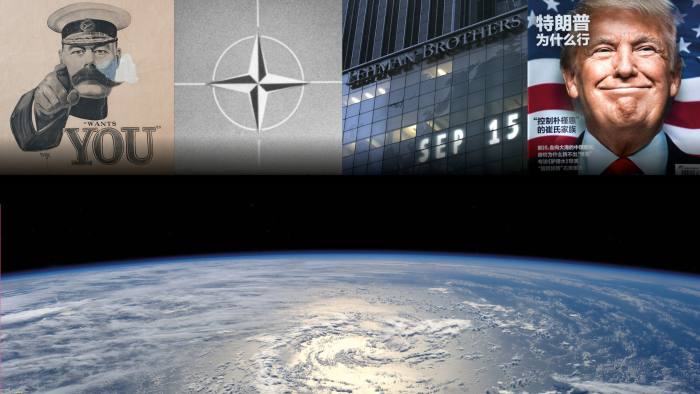
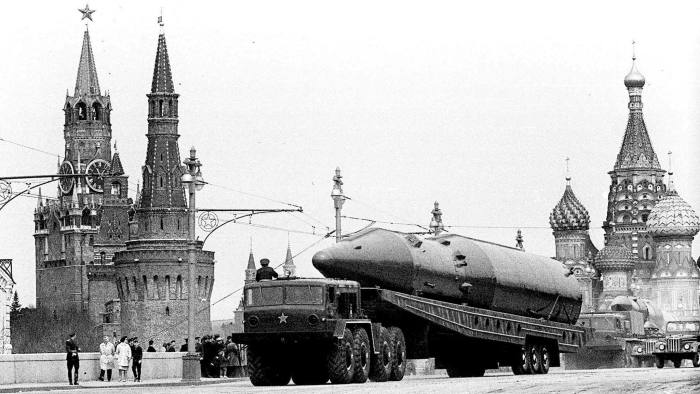
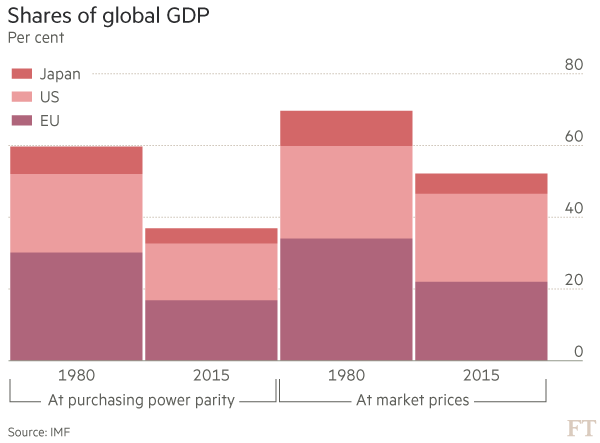
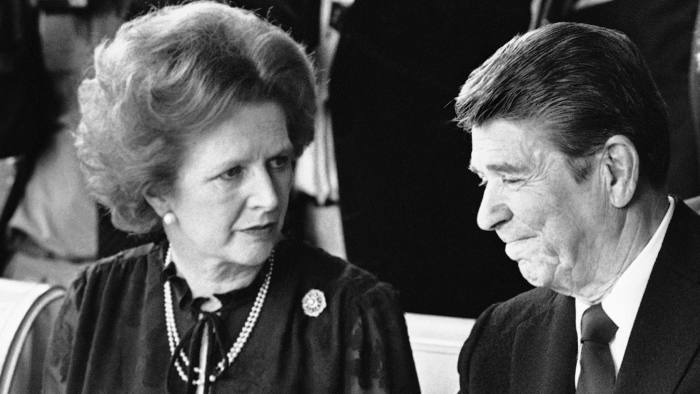

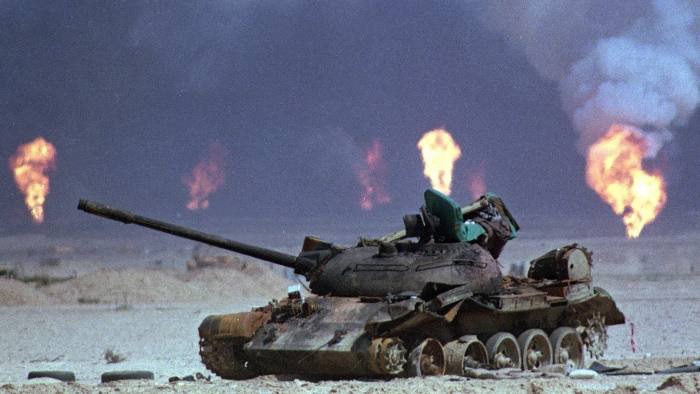
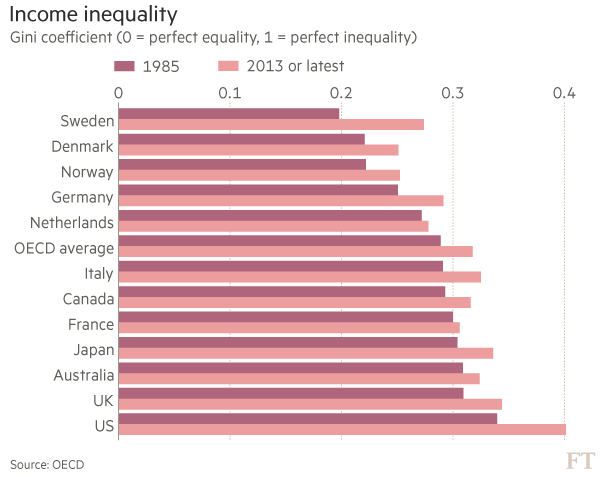
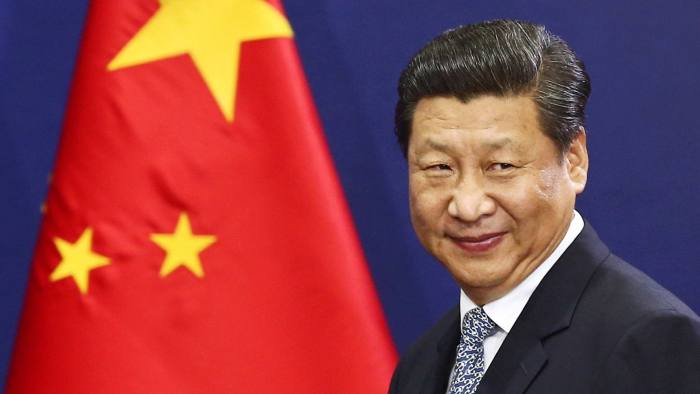



No comments:
Post a Comment